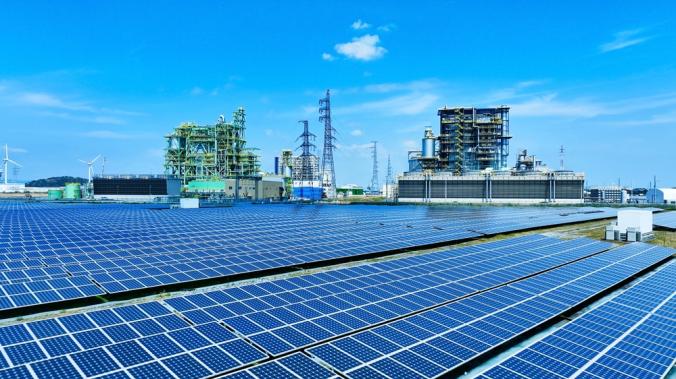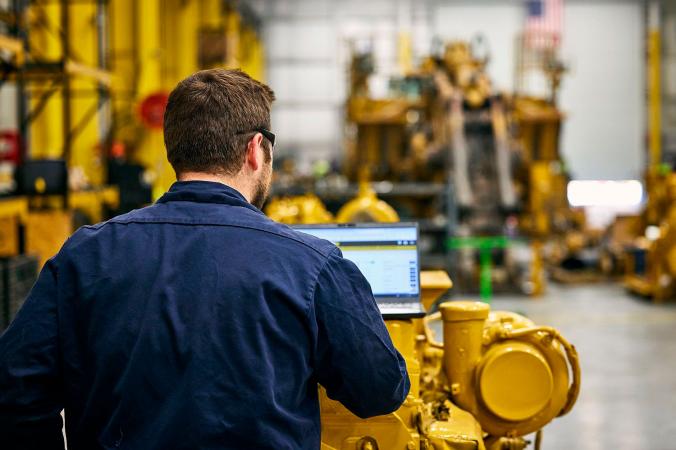How Industry 4.0 Revolutionized Manufacturing and Maintenance
The term "Industry 4.0" often emerges in conversations about the future of manufacturing. Industry 4.0 is not merely technological upgrade; it's a fundamental transformation in how factories operate.
This ongoing evolution promises not just improved productivity but also enhanced efficiency, reduced downtime and a greater ability to meet customer demands.
What Is Industry 4.0?
Industry 4.0, often known as the fourth industrial revolution, is a transformative shift in the manufacturing sector resulting from the adoption of cutting-edge technologies. The major goal of Industry 4.0 is to build smart factories and highly automated environments in which machines, systems and people all connect seamlessly.
Industry 4.0 refers to more than just automation. It also involves intelligent automation, in which systems may self-monitor, self-diagnose and make data-driven decisions. Deploying Industry 4.0 technology can result in efficiency gains of up to 20% in industrial operations.
Examples of Industry 4.0 in Action
Several industries lead the way in leveraging the capabilities of Industry 4.0, such as:
Consumer Goods
In the consumer goods market, manufacturers use AI and IoT to monitor and optimize production processes, minimize waste and improve product quality. Smart factories, for example, may alter the output in real time in response to demand. This ensures that items reach customers as promptly as possible.
Automotive Manufacturing
In the automotive industry, IoT sensors monitor manufacturing lines, AI predicts goals for maintenance departments and robots assemble parts precisely. This integration results in enhanced productivity and reduced downtime.
Core Technologies That Enable "Maintenance 4.0"
Let's look at how Industry 4.0 technologies are affecting maintenance methods in the manufacturing sector.
Saving Time and Money With Artificial Intelligence
AI is a game changer in maintenance. It provides predictive analytics, allowing you to anticipate equipment issues before they occur. AI can offer appropriate industrial maintenance management goals based on historical data, saving you both time and money.
Predictive Maintenance Via Industrial Internet of Things (IIoT)
IIoT combines machines, sensors and devices to establish a network that continuously collects data. This connectivity provides real-time monitoring and predictive maintenance, allowing you to deal with issues proactively rather than reactively.
Maintenance Record Analysis Through Big Data
Imagine having access to a wealth of information that can help you predict equipment failures before they happen. With big data analytics, you can analyze patterns from past maintenance records, usage statistics and even environmental conditions. This allows you to implement a strong maintenance plan.
Advantages of Implementing Maintenance 4.0
As businesses shift to Industry 4.0, the significance of implementing Maintenance 4.0 practices becomes clear. Here are some of the advantages:
Improved Asset Management With Real-Time Information
Real-time information enables producers to monitor asset performance continuously. This allows timely decision-making based on reliable data, resulting in better resource allocation and less waste. Companies using real-time monitoring often claim an increase in asset utilization.
Reduced Maintenance Costs With Smart Inventory Management
Intelligent inventory management solutions assist firms in maintaining ideal inventory levels, eliminating extra costs and guaranteeing that vital items are always available.
Predictive Maintenance Helps to Reduce Downtime
Predictive maintenance uses data analysis techniques to predict probable issues before they occur, hence reducing unnecessary downtime. Companies can save greatly by decreasing equipment failures and increasing asset life by setting correct maintenance goals.
To Summarize
Industry 4.0 brought tremendous change to production environments. It has helped define new maintenance management goals through the integration of sophisticated technologies that promote automation, connection and efficiency.
Industry 4.0's components — IoT, AI, big data analytics, cloud computing and cyber-physical systems — are altering not only factory maintenance processes but the entire manufacturing ecosystem.
As you investigate the potential of these technologies, think about how they may be integrated into your operations to increase efficiency, save costs, achieve maintenance goals and improve product quality. Embracing these developments is more than just keeping up with the competition; it is about long-term survival.
Remember there is always more to learn. It's an important part of preparing yourself to succeed in the new manufacturing era.






![EMR_AMS-Asset-Monitor-banner_300x600_MW[62]OCT EMR_AMS-Asset-Monitor-banner_300x600_MW[62]OCT](/var/ezwebin_site/storage/images/media/images/emr_ams-asset-monitor-banner_300x600_mw-62-oct/79406-1-eng-GB/EMR_AMS-Asset-Monitor-banner_300x600_MW-62-OCT.png)



